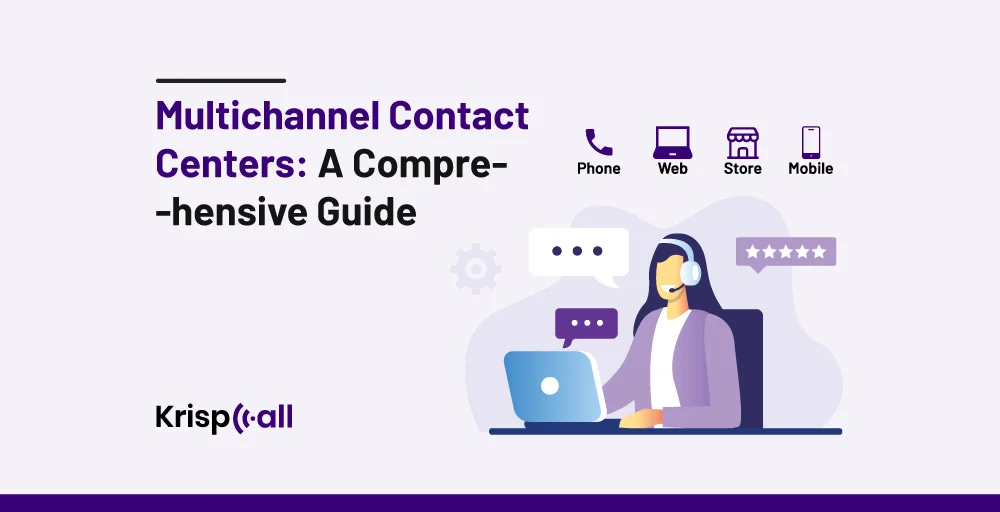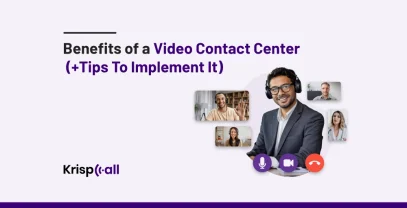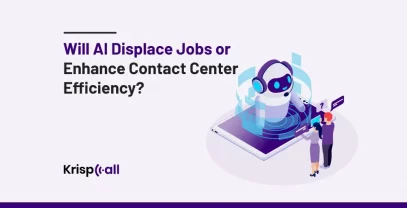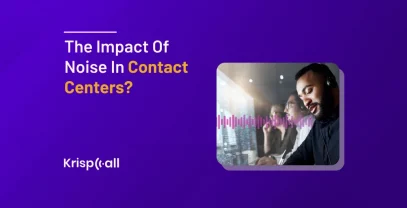Are you tired of managing multiple communication channels to serve your customers? 📞📧📱
Managing inquiries via phone, email, chat, and social media can be difficult. But fear not! Multichannel contact centers come to streamline customer interactions and boost satisfaction. If you’re looking to enhance your marketing efforts across various channels, implementing a robust multichannel marketing strategy can amplify your reach and engagement
A multichannel contact center is the ray of hope that breaks through this confusion, proving business an efficient way to interact with clients across various communication channels.
In this blog, you will learn everything you need to know about multichannel contact centers.
🔑 Key Points
- A multichannel contact center aims to provide businesses a more flexible and convenient way to connect with customers, ultimately enhancing the customer experience.
- Social media platforms like Facebook and Twitter have become popular channels for customer service. Businesses can address customer concerns publicly or privately through direct messages.
- A multichannel contact center offers more options for customer interaction, while an omnichannel contact center prioritizes a unified and consistent customer experience across all channels.
- KrispCall utilizes an advanced cloud contact center solution to increase customer satisfaction.
What is a Multichannel Contact Center?
A Multichannel contact center is a software platform that unifies a business’s interactions with customers through various communication channels, such as voice, email, web chat, SMS texting, video meetings, and Social media.
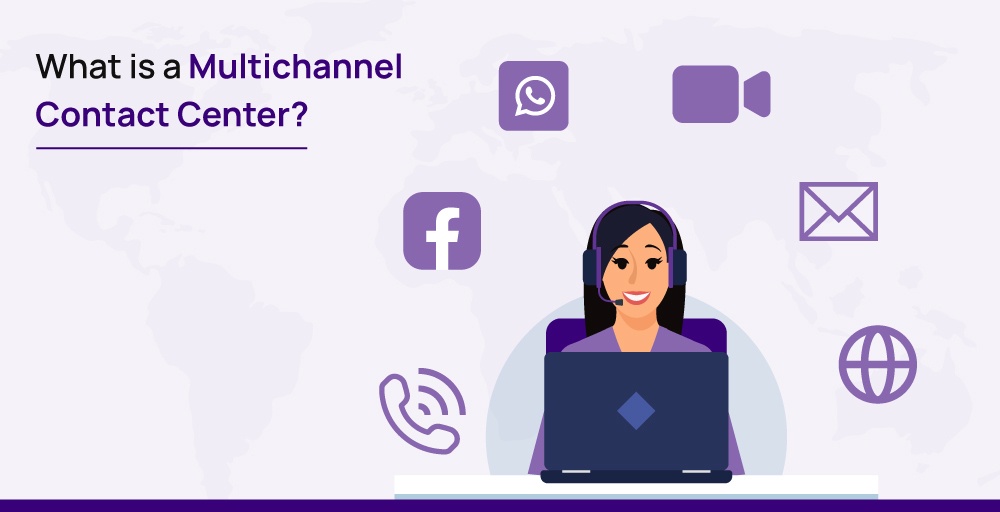
Multichannel contact centers provide a seamless way to connect with customers regardless of their preferred communication method. By combining various channels into a single solution, businesses can enhance efficiency and customer satisfaction.
Typically deployed as cloud-based systems, multichannel contact centers empower support and sales agents to engage across digital channels beyond the confines of a traditional call center. Unlike a multichannel call center, which categorizes different “call channels,” the term “multichannel” here specifically refers to distinct communication channels.
Here are some essential channels and features every multichannel contact center should have:
- Voice: This is still an essential channel for customer service, particularly for more complex inquiries or ones that need more individualized attention.
- Email: Email is a popular method for communicating with customers for customer service. It works well for in-depth questions or when the client requires a transcript of the exchange. Many businesses still use email to reach out to their customers.
- SMS: SMS is a convenient way for businesses to send appointment reminders, shipping updates, or quick answers to customer questions. It is a great channel to reach out today.
- Live Chat: This option integrates live chat support into a website, enabling clients to ask questions and receive prompt responses without calling.
- Social Media: Thanks to social media sites like Facebook, Instagram, and Twitter, customer service channels have become popular. Businesses can discreetly or publicly address customers’ problems via direct messaging. Customers are reaching out to companies through Social media.
What are The Benefits of Multichannel Contact Center?
When your company switches to a multichannel contact center instead of using only a landline phone system, several benefits exist.
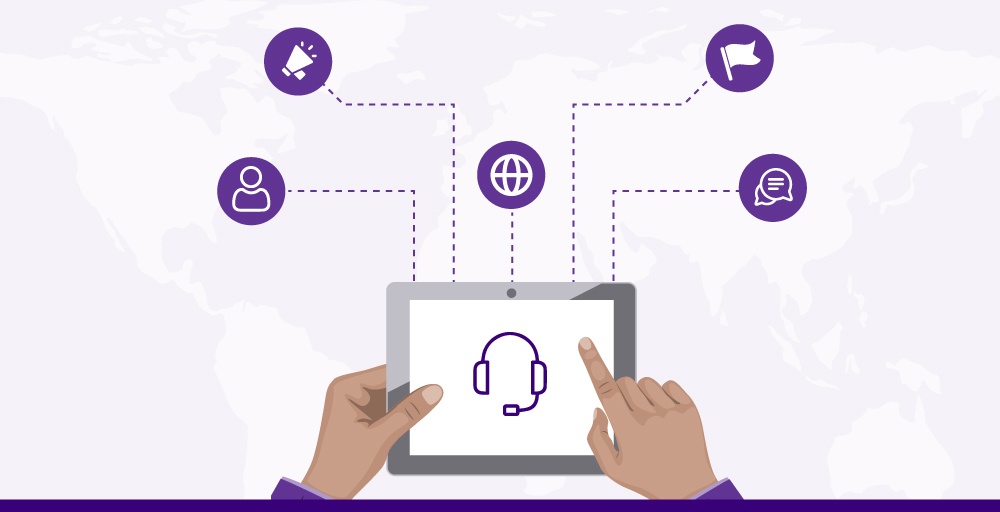
Multichannel contact centers provide stronger analytics, better routing capabilities, and more functionality. These solutions improve the overall customer care provided by your contact center by streamlining agent interactions.
Here are some top benefits of using multichannel contact center software:
1. Advanced contact center insights
Multichannel contact centers use AI technology to provide detailed insights into contact center performance. They are outfitted with advanced analytics capabilities and extensive reporting functions. In addition to actively monitoring queue activity in real-time, supervisors can also engage in agent chats, assess customer attitude, listen to audio recordings of exchanges, and see transcripts of those interactions in real-time.
Administrators can examine call center KPIs using hourly heat maps and determine which communication channels yield the best return on investment. Furthermore, many CCaaS providers feature wallboards, dashboards, and reporting tools that can be customized to fit certain metrics and key performance indicators (KPIs).
2. Better customer service
Multichannel and omnichannel contact center features aim to enhance customer engagement. By integrating CRM systems, agents gain access to valuable customer data, eliminating the need for customers to repeat order numbers.
Moreover, the provision of several communication channels facilitates client connectivity via their favored touchpoints. Furthermore, skills-based routing IVR menus increase the probability that clients will speak with the best agent on their first call.
3. Reduce cost
Establishing a multichannel contact center can require an upfront investment, but with time, costs can decrease. Lower wait times and increased agent productivity can reduce overall operating expenses.
The long-term advantages of lower operating costs through increased efficiency and better resource allocation make a strong argument for the value proposition of a multichannel contact center, even though its initial setup demands investment in technology and training.
4. Omnichannel customer journey
Consumers can move between channels throughout a conversation without experiencing any interruptions. An easier and more seamless client journey results from this.
Ultimately, an omnichannel approach enables businesses to meet customers with consistent and personalized service across various touchpoints, contributing to greater satisfaction and loyalty.
5. Improved agent morale and performance
Multichannel contact centers offer features designed to enhance agent productivity and streamline operations.
Thanks to AI-based WFM, agents can manage their calendars with features like shift bidding, requests, and the option to exchange shifts directly within the agent portal. The system automatically forecasts the best schedule based on expected call center activity.
Thanks to the comprehensive dashboard equipped with CRM interfaces, agents can avoid opening numerous applications at once. Instead, during a live conversation, they can access client profiles and information using the CCaaS interface.
Omnichannel Vs Multichannel Contact Center: What’s The Difference?
The terms ‘multichannel contact center’ and ‘omnichannel contact center’ are frequently used interchangeably; they carry nuanced distinctions.
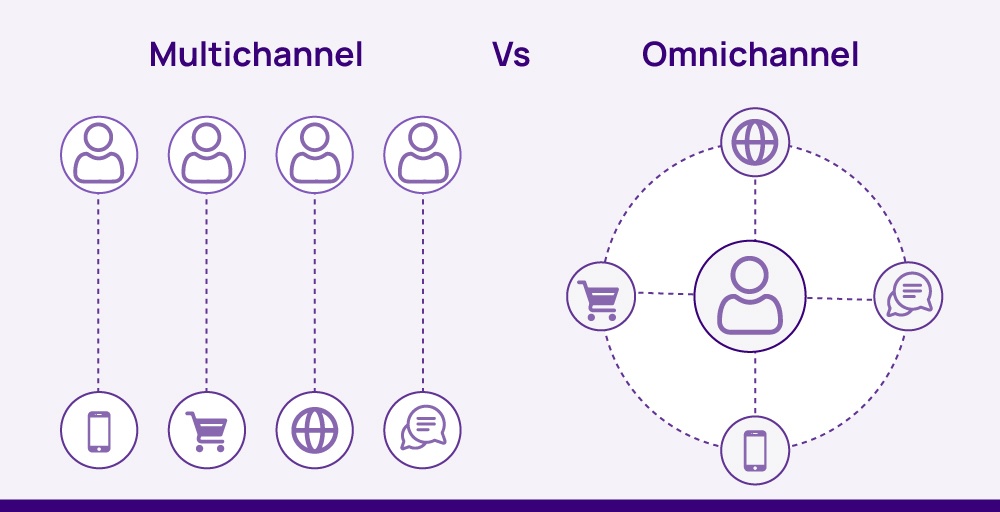
A multichannel contact center divides all communication channels into individual engagements, whereas an omnichannel contact center unifies all channels to form a continuous and coherent customer history.
A multichannel contact center segregates customer interactions across individual channels into discrete journey histories.
For instance, if a customer calls your company one day and emails the next, the multichannel CCaaS software records these interactions as separate queries. Consequently, different agents can handle these inquiries, potentially lacking the complete context of the customer’s journey history.
Here’s a table summarizing the key differences:
| Features | Multichannel Contact Center | Omnichannel Contact Center |
| Meaning | A multichannel contact center offers more options for customer interaction | An omnichannel contact center prioritizes a unified and consistent customer experience across all channels. |
| Channel Integration | Limited | Seamless integration |
| Customer Experience | Disjointed | Unified and smooth |
| Agent Visibility | Limited to current channel | Complete customer journey view |
| Data Management | Siloed by channel | Unified customer data |
Best Practices For Setting Up a Multichannel Contact Center
When establishing a multichannel contact center, it is crucial to strategically assess the channels, features, and analytics that yield the greatest advantages. Prioritize the channels most frequently utilized by your customers, and select a pricing plan that aligns with your desired features while minimizing unnecessary components.
Leveraging AI and customer self-service tools enhances convenience for customers and contributes to optimizing staffing requirements within your organization.
Customer profiling
Know who your customers are. By segmenting your consumer base based on demographics, preferences, and previous interactions, you can customize the communication channels available and direct queries appropriately.
Compile comprehensive client profiles by utilizing data from several sources, such as prior purchases, internet usage, and social media interactions. This will allow you to foresee client requirements and deliver a better-tailored experience across all platforms.
Agent training
Properly trained agents must be able to multitask across many communication modalities. Training should cover the subtleties of every channel, such as protocol, recommended practices, and platform-specific troubleshooting methods (email, chat, social media, etc.).
By participating in role-playing exercises, agents can acquire the skills necessary to manage questions on various channels and provide a satisfying client experience.
Integration with CRM systems
Integrating a multichannel contact center with your Customer Relationship Management (CRM) system should be smooth. This guarantees that, regardless of the channel used, all client interactions and data are centrally located and easily accessible by agents.
When agents can access real-time data, they can deliver quicker and more knowledgeable service. This integration also allows for better analytics and reporting, letting you monitor important indicators and pinpoint areas for development.
Continuous monitoring and optimization
Your multichannel contact center’s performance depends on constant setting and monitoring. Monitor important data such as customer satisfaction ratings, first-contact resolution rates, and average handling times.
Examine this data to find areas that need improvement, bottlenecks, and consumer preferences for particular channels. Utilize this information to improve agent scheduling, channel offers, and strategy refinement and better serve your clients.
Future Trends in Multichannel Contact Centers
Future developments in multichannel contact centers will be shaped by new technology and changing consumer expectations. Here are some potential future trends to watch out for:
Integration of AI and automation
Automation and artificial intelligence (AI) will become more and more significant in multichannel contact centers as these technologies develop.
Chatbots, virtual assistants, and natural language processing systems driven by artificial intelligence (AI) will handle mundane questions and tasks, freeing up human agents to concentrate on more complicated problems and delivering a consistent customer experience across channels.
The evolving role of contact agent
Human agents will concentrate on more strategic interactions that call for empathy, critical thinking, and problem-solving abilities as AI takes over ordinary duties.
Agents will develop into customer experience experts, using technology and data to offer individualized service and forge closer client bonds.
Unified customer experience
The goal of multichannel contact centers in the future will be to provide a consistent customer experience across all media. This entails maintaining uniformity in message, branding, and service standards across all consumer interaction channels with the company.
Robust CRM systems and integrated omnichannel solutions will be essential to reaching this objective.
The growing importance of data privacy and security
Data security and privacy will be crucial as client interactions occur across several media.
Companies must have strong security protocols to safeguard confidential client data and adhere to changing data privacy laws.
Emphasis on customer engagement and relationship building
Multichannel contact centers will put more of an emphasis on creating engagement and long-term client connections than just responding to urgent questions or problems.
To increase client loyalty and lifetime value, this may entail proactive outreach, tailored advice, and focused marketing efforts distributed across a variety of media.
Expansion of Communication Channels
Multichannel contact centers will need to grow and adjust in order to accommodate the emergence of new communication channels including voice assistants, social media platforms, and messaging applications.
To satisfy consumer expectations and preferences, businesses will need to make investments in technology that facilitates the smooth administration and integration of these many channels.
KrispCall a Cloud-Based Contact Center for Exceptional Customer Support
KrispCall offers a top-tier contact center software solution designed to assist businesses in efficiently managing customer relationships and delivering personalized support experiences. KrispCall can be one of the best choice for a multichannel contact center solution due to its call, voicemail, SMS notifications, bulk SMS, and integration with other platform’s features.
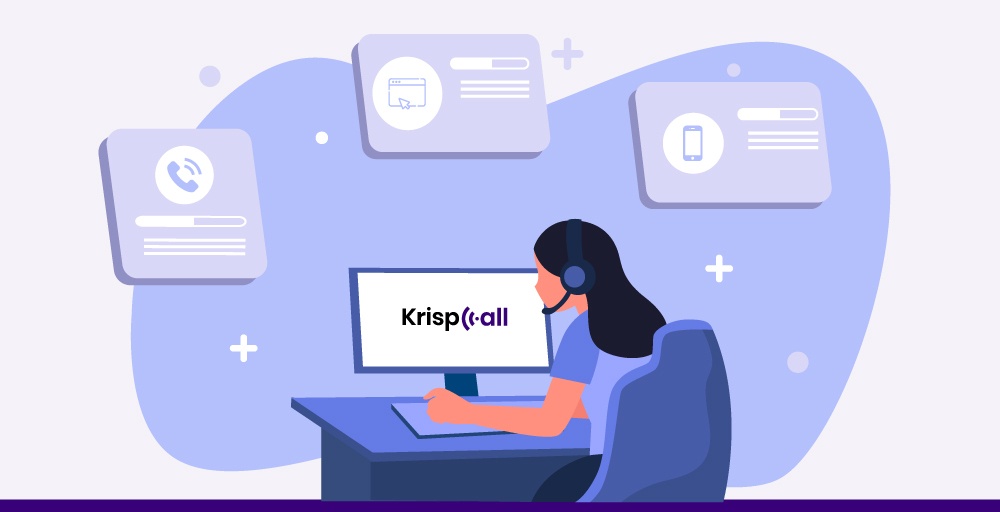
With its advanced features and unwavering commitment to customer satisfaction, KrispCall distinguishes itself from its competitors.
Consider selecting KrispCall as your cloud-based contact center solution to unlock the benefits of enhanced customer relationships. Notably, KrispCall has established itself as a reliable service provider, catering to over 5,000 companies across more than 100 countries.
Let’s explore with KrispCall contact center software what you can do:
- Easily manage all incoming and outgoing calls from anywhere on any device.
- Run your contact center operations from overseas.
- Seamless integration with popular CRM software.
- Enhanced agent efficiency and productivity
- Use the most recent features without being interrupted.
Wrapping Up
A multichannel contact center serves as a vital tool for businesses to effectively engage with customers across diverse communication channels, including voice, email, web chat, SMS, video meetings, and social media.
By consolidating these channels into a single platform, businesses can provide seamless customer experiences, enhance efficiency, and boost customer satisfaction.
While setting up a multichannel contact center requires careful planning, integration with CRM systems, and ongoing monitoring and optimization, the long-term benefits outweigh the initial challenges, ultimately leading to improved customer relationships and business success.
KrispCall is one of the leading cloud-based contact center software that allows organizations to manage their customer interactions across multiple communication channels like phone calls, voicemail, and text SMS.
FAQ
What is multichannel communication?
Multichannel communication is a strategy for businesses to interact with their customers across multiple channels, such as email, SMS, voice calls, social media, and more. It allows businesses to interact with their audience through various platforms, ensuring messages resonate with customers on their preferred channels.
Why is multichannel communication important?
Multichannel communication is crucial because it allows you to reach customers on their preferred platforms, fostering better engagement and a stronger brand image with various communication channels, like email, social media, phone calls, and live chat.
What is an example of multichannel customer service?
“A company that offers assistance across various channels, including phone, email, live chat, social media interactions, and self-help materials, is an example of multichannel customer service. This strategy gives clients the flexibility to contact the business via the channel of their choice, enhancing the multichannel customer experience.
For example, an e-commerce company could offer shoppers help through a 1-800 number, a chatbot on the website, an X feed for public questions, and a community forum for customers to help each other.”
What are the disadvantages of multichannel contact centers?
The disadvantages of a multichannel contact center are increased operation complexity and costs are.
- Incresased complexity
- Integration challenges
- Agent traning and skills
- Potential for inconsistency
How do you set up a multichannel contact center?
Setting up a multichannel contact center involves several key steps:
- Identify Preferred Channels: Ask customers about their preferred channels.
- Prepare Agents for Multichannel Environment: Train agents for handling various channels.
- Use Agent Assistant Tools: Tools can help manage the increased workload.
- Consider Omnichannel Approach: Aim for seamless integration across channels.

